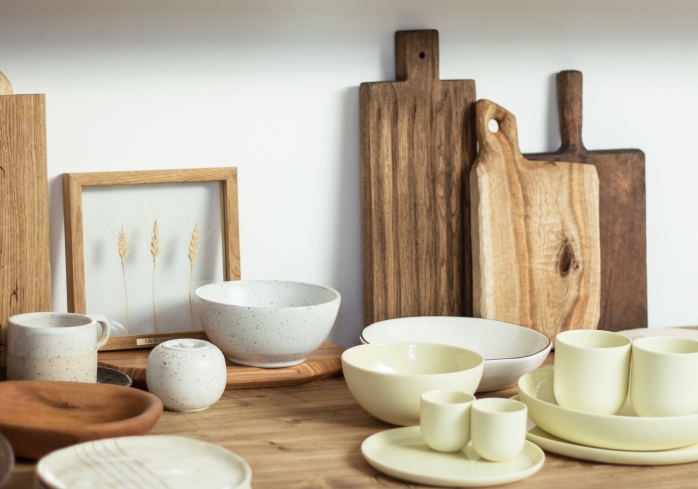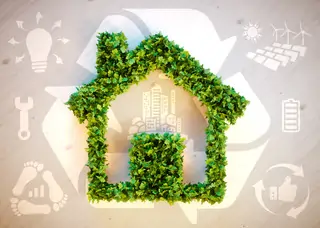Buy Well, Buy Less: The Mindful Consumer’s Guide to Sustainable Shopping
When it comes to making purchases, we are often so focused on immediate gratification that we tend to forget about the longer-term impacts of our decisions. But now, more than ever, it’s important to consider the quality and sustainability of the products we buy and the impact they have on our planet.
From materials sourcing to your shopping cart – this is the journey of a sustainable product and why YOUR buying decisions matter!

In a recent EY study, we’re paying 56% more attention to the environmental impact of our spending and 30% of us will prioritise buying more second-hand goods.
Built-to-last items are becoming increasingly popular with sustainable shoppers as it’s an important piece of the puzzle when it comes to reducing our environmental impact. By investing in products that are designed to stand the test of time, and by being mindful of how much we consume, we can drastically reduce the amount of waste we produce and the associated carbon footprint.
Here’s what to consider about the far-reaching implications for the supply chain, and a product’s journey to the consumer from an ethical and sustainability point of view:
-
Better quality products that save you money in the long run

We all have stories from our parents or grandparents who held on to obscure and adored household items for the duration of their lives; products that can withstand the test of time. This means that you will have fewer repair, replacement, and upgrade costs in the long run, saving you a significant amount of money (and hassle!). But it goes deeper than that – investing in longevity also means that you are reducing the demand for cheaper, low-quality products that may need to be replaced more frequently, which contributes to the wastefulness of our current consumer culture. Check out some of our outdoor furnishings, which can follow you from home to home.
Better yet, high-quality items are often made from better materials and crafted with care and attention. There’s nothing like the pride and satisfaction of owning something that brings you joy on a daily basis, such as these antique vintage shutters. By prioritising quality over quantity, you can make more mindful purchasing decisions.
-
Reduced use of resources and better manufacturing processes
From an ethical and sustainability point of view, products that are designed to be durable and long-lasting have a lower carbon footprint and reduced use of resources. Sustainable manufacturing processes include:

- Using materials that are sustainably sourced, such as wood from certified forests or recycled materials. Also reclaimed wood or bamboo requires less energy to be worked.
- More energy-efficient production practices are used. Using renewable energy sources like solar or wind power, or implementing closed-loop manufacturing processes which ensure all materials in production can be reused. These companies prioritise implementing water conservation measures too.
- Minimising waste production and ensuring that any by-products are recycled or reused. Such as sawdust or wood shavings can be used to create other products, like particleboard or mulch.
The avoidance of using cheaper and potentially more damaging materials and production processes to reduce costs.
3. Supporting fair trade and ethical manufacturing procedures
Sustainable shopping often goes hand in hand with supporting companies that prioritise ethical work conditions. When a company invests in creating expensive and long-lasting products, they often take a more holistic approach to its manufacturing process. They prioritise the ethical sourcing of materials and fair treatment of workers. They are transparent about their supply chain and their certifications can be found, such as Ethical Trading Initiative or Global Organic Textile Standard.
With the growing trend among a more conscious community, 76% of consumers in the UK believe that companies have a responsibility to ensure that workers in their supply chains are treated fairly. Last year, 93% of the world’s largest 250 companies produced sustainability reports and 84% now report on carbon emissions (that’s nearly doubled since 2013 when only 45% were reporting)! When companies prioritise ethical practices, it creates a ripple effect that can lead to more sustainable and equitable work conditions throughout the whole industry.
Every purchase you make is a vote for the kind of world you want to live in. The seemingly small choices you make in what you choose to buy have a ripple effect that reverberates throughout the entire industry and supply chain.
Here are our quick tips if you’re looking to further prioritise longevity over disposability in your lifestyle:
- Do your research: Before making a purchase, do some research on the product and the brand. Look for companies that prioritise sustainability and ethical practices, and choose items made from high-quality or recycled materials.
- Consider the cost per use: A more expensive item that will last for years is often a better investment than a cheap item that needs to be replaced frequently.
- Take care of your purchases: Show them the love that they deserve. Follow the manufacturer’s care instructions, store items correctly, and repair any damage promptly.
Ultimately, “buy well, buy less” is about taking a more mindful and responsible approach to consumption. By being more conscious of the products we purchase and the implications of our buying habits, we can make a positive difference in the world and create a more sustainable future.







